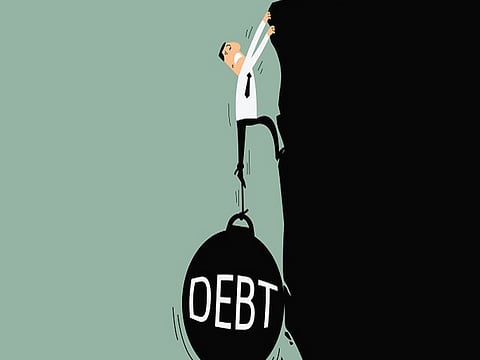Saudi Arabia mulls scrapping prison sentences for debt defaulters
Relaxed rules to include ending suspension of government services with defaulters

Also In This Package
Abu Dhabi: In a major relaxation of existing rules, Saudi Arabia plans to scrap jailing of debt defaulters, local media reported. The revised rules, drafted by the Ministry of Justice, include ending suspension of government services provided to and financial dealings with defaulters, in addition to cancelling executive detention of those who default on debts.
The new law will give defaulters right to ample notice to repay dues before repossessing assets to realise the arrears. During the notice period, defaulters can make their representation to the authorised officer and put forth their objections to the repossession notice.
The rules state it is not permissible to seize the following:
* State-owned funds;
* The house in which the defendant and their legal dependents live, but it is permissible to seize it if it is mortgaged to the creditor;
* The means of transporting the defendant and his legal dependents, but it may be seized if it is mortgaged to the creditor;
* Wages and salaries, except for the following:
1. Half of the total wage, or salary, for the alimony debt.
2. One-third of the total wage, or salary, for other debts. Half of the total wage or salary is allocated to the alimony debt, and one-third of the other half for other debts, and in the event of multiple such debts, one third of the half shall be distributed among the creditors in accordance with the provisions of the law.
* What is required for the defendant to practice his profession;
* The personal requirements of the defendant; and
* Governmental subsidies provided to the defendant.
The new rules will guarantee right to ensure fair value and realise balance proceeds. Resisting or suspending execution of attachment on properties shall be penalised by a jail time not exceeding seven years and or a fine of up to 300,000 riyals, according to the draft rules.
The move is part of the country’s targets to attract foreign investors by modernising the Saudi law to match international laws and business practice. In August 2018, a new Bankruptcy Law was created as a balanced modern means to protect both debtors and creditors in Saudi Arabia.
It was also part of a series of Saudi judiciary reforms through the issuance of new commercial laws and regulations such as the new Companies Law of 2015 and the amended law of Civil Procedures. The economic crisis the country has undergone during the past few years because of low oil prices, prompted the creation of a Bankruptcy Law for the benefit of all parties doing business in Saudi Arabia.
Historically, declarations of bankruptcy are very rare in Saudi Arabia. In most instances, such a declaration would require the imprisonment of the bankrupted individual for five to seven years, not as a penalty but to ensure that the bankruptcy claim was not fraudulent.









